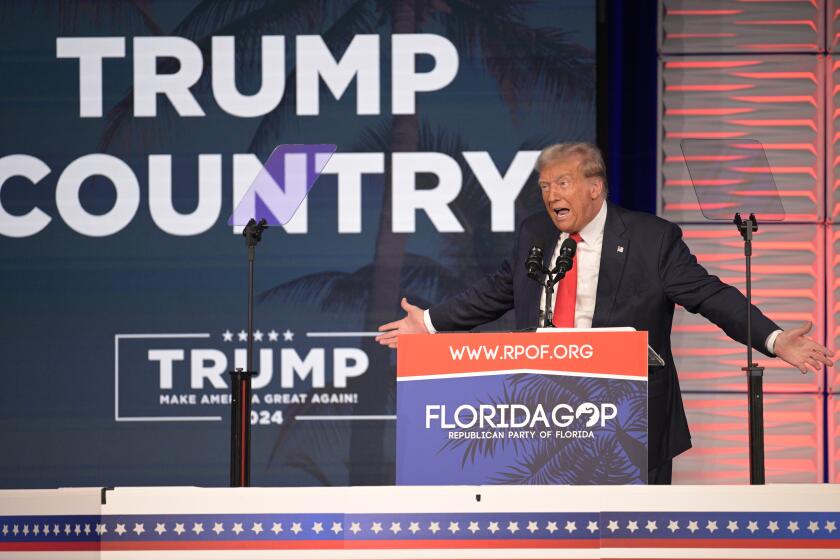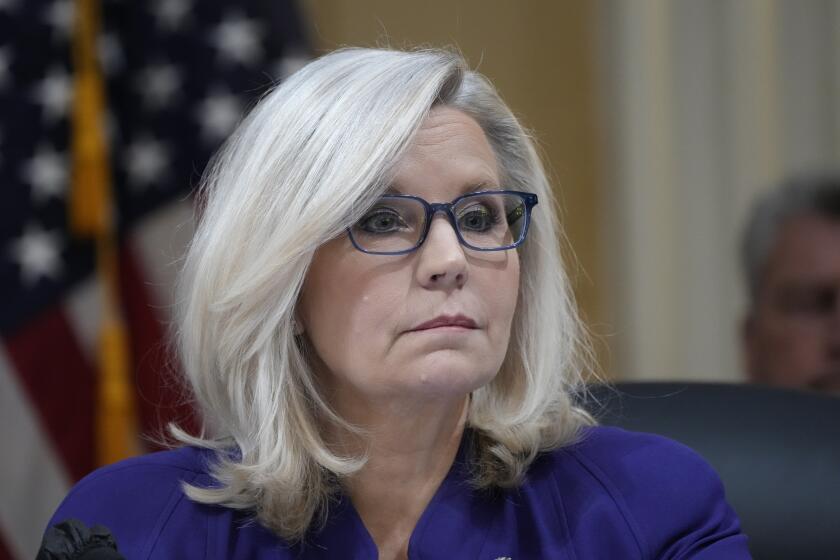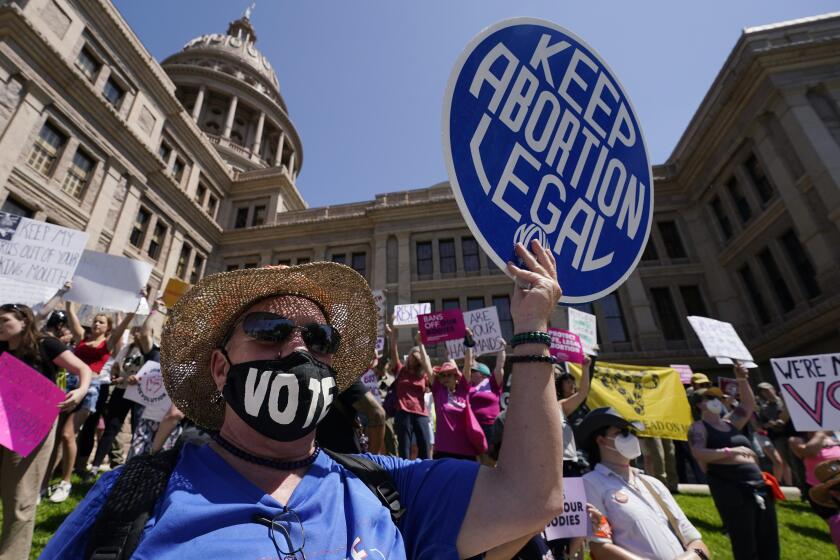Senate Ratifies Treaty That Outlaws Genocide
The Senate, overcoming almost four decades of opposition from conservatives, voted overwhelmingly Wednesday to ratify a post-World War II treaty declaring genocide to be a crime.
“We have waited long enough,” Senate Majority Leader Bob Dole (R-Kan.) said shortly before the Senate voted 83 to 11 in favor of making the United States the 97th nation to approve the treaty.
All votes against the treaty were from Republicans. Both California senators--Democrat Alan Cranston and Republican Pete Wilson--voted for it.
Known as the Genocide Convention, the pact was submitted by the United Nations to its members in 1948 as a reaction to Nazi efforts to annihilate the Jews of Europe. All U.S. presidents since then, except Dwight D. Eisenhower, have asked the Senate to consent to ratification. The Constitution stipulates that ratification of any international treaty requires the consent of both the President and the Senate.
Means of Prosecution
Even supporters of the pact concede that its practical effects are limited. It sets up a means of prosecuting those who have tried to destroy national, ethnic, religious or racial groups, but many countries that have ratified it have exempted themselves from some of its procedures.
Also, despite the fact that it had been ratified by dozens of nations, it apparently has had no force in preventing more recent waves of genocide in Africa and Cambodia.
“All things considered, this is a symbolic gesture, but it’s an important symbol,” said Mark Helmke, an aide to Senate Foreign Relations Committee Chairman Richard G. Lugar (R-Ind.). “The Soviet Union, in its propaganda, has long used our refusal to sign the genocide treaty against us.”
Senate approval was gained only after Lugar, who supported the treaty, and leading conservative opponent Sen. Jesse Helms (R-N.C.) agreed on a carefully worded set of “reservations”--basing U.S. ratification on a series of qualifications to be understood by other treaty participants. Although Helms voted against the treaty Wednesday, he agreed in exchange for the reservations not to work actively against it.
Can Exempt Itself
The most controversial of the reservations would give the United States the right to exempt itself from World Court jurisdiction in any genocide cases that may be pressed against it.
“As far as I am concerned, the United States is the ultimate protector of human rights in the world,” Helms said during debate on the treaty.
The treaty’s staunchest supporters had argued that such qualifying provisions would destroy the spirit of the pact, but conservatives had insisted upon them as protection against what Dole described as “trumped-up charges of genocide by our adversaries in hostile forums.”
The Reagan Administration originally had opposed such restrictions but reversed itself last year after the World Court asserted its jurisdiction in a case filed by Nicaragua over the U.S. mining of Nicaraguan harbors.
In the past, opponents to the treaty have threatened a filibuster. At first, they said they feared that the pact would make the United States the target of genocide charges based on racial segregation. In later years, similar concerns were voiced over potential genocide cases arising from U.S. involvement in Vietnam.
The turning point apparently came in 1984, when President Reagan embraced the treaty. Support from such a conservative President “cut the ground from the right wing,” said Sen. William Proxmire (D-Wis.), who since 1967 has pressed for the treaty in more than 3,000 speeches on the Senate floor.
Sen. Steven D. Symms (R-Ida.) had tried to amend the treaty, contending that its 38-year-old provisions did not take into account the more modern development of “political genocide.” Symms argued that the treaty should apply, for example, to Soviet aggression in Afghanistan.
The Senate defeated, 62 to 31, his proposed amendment that would have insisted that the treaty be rewritten to include political genocide in its terms. However, it took a separate vote after the ratification vote, directing Reagan to negotiate such an addition with other nations participating in the convention.
Get our Essential Politics newsletter
The latest news, analysis and insights from our politics team.
You may occasionally receive promotional content from the Los Angeles Times.



